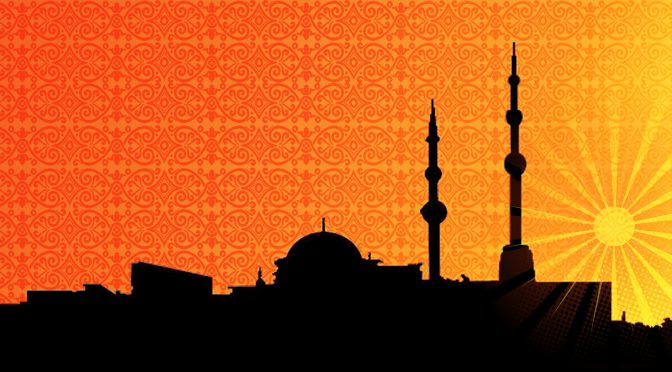Guest post by Elisa Gallaccio.
BA Political Science minor in Economics.
Ramadan Mubarak
 Ramadan is the ninth-and holiest-month of the Islamic lunar calendar and the month of fasting for Muslims. Ramadan is considered the holiest month because it was in Ramadan that the Qur’an was first revealed.
Ramadan is the ninth-and holiest-month of the Islamic lunar calendar and the month of fasting for Muslims. Ramadan is considered the holiest month because it was in Ramadan that the Qur’an was first revealed.
(http://www.wathakker.info/english/
mobile_images/images/ramadan.jpg )
Fasting is one of the five pillars of Islam, along with confession of faith, five daily prayers, zakah (almsgiving) and Hajj (pilgrimage to Makkah).Ramadan starts upon sighting of the moon. This year, it began on the 7th of June.
The purpose of fasting during Ramadan is to help Muslims grow closer to Allah. Fasting is recognized for its health, spiritual and psychological benefits, and is considered by Muslims as a means to improve their moral character and provides an opportunity for spiritual renewal.
A typical day during Ramadan
Muslims will wake up before the sun rises and eat and drink to prepare for their day. Once the sun is up, there is no eating, drinking, smoking, or intimate encounters until sundown, otherwise known as iftar. Iftar then begins by consuming dates and drink, before beginning their post-iftar prayers. Once the prayers are performed, dinner is typically after 9 pm, until the next day, when the fast begins again. Muslims fast for 14-18 hours per day during Ramadan.
Fasting is significant to Islam in many ways. It is not meant to starve Muslims of substance, but rather serves as a lesson on how to control and discipline human desires. When fasting, one learns to say no to things that are otherwise permissible and good. And when one can say no to things that are normally permissible, then one would be able to easily control and avoid that which is forbidden. In essence, it allows one to understand better with those who have very little-the poor and the destitute-and as such, teaches empathy, sympathy, and takes away some of our human selfishness and self-centeredness. Fasting is seen as an opportunity to exercise self-control, cleans the mind, body and spirit, and build a greater connection with Allah through prayers, which ultimately promotes peace. Ramadan is also a time of charitable services, where Muslims can give back to their community and connect with one another.
Ramadan is set to end on or near July 6th 2016, depending on the sighting of the new moon. Eid-ul-Fitr celebrations begin for three days after the end of Ramadan. It is during this celebration that practicing Muslims come together to be with their families, prepare feasts, exchange gifts, continue to be charitable, and forgive any harm done to one another. It is a time of love, of prayer and blessings, and connectedness with Allah.
To all those participating in Ramadan this year, stop by the International Programs and Services office(UNC 227) on July 6th and 7th for treats and celebration! Eid Mubarak!


 Follow
Follow